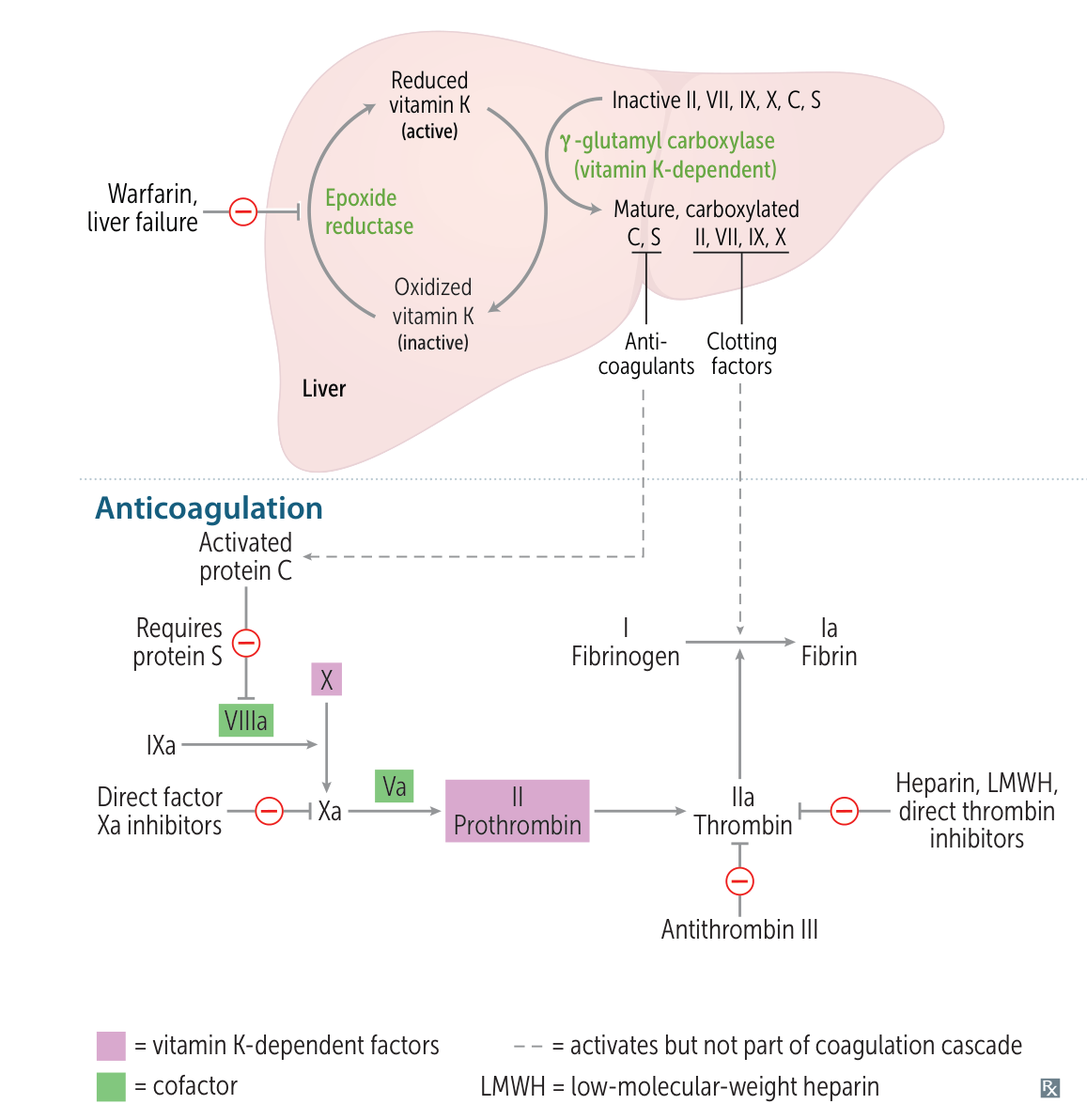
- Tissue factor pathway inhibitor: inhibits tissue factor
- Protein C and protein S: Activated protein C and its cofactor protein S form the activated protein-C complex (APC complex), which inhibits factors Va and VIIIa.
- Vitamin K-dependent synthesis in the liver
- Shorter half-life than vitamin K-dependent coagulation factors (relevant for treatment with vitamin K antagonists, e.g., warfarin)
- Clotting risk will increase during the initial administration of warfarin, because protein C and S will break down faster.
- Clinical relevance
- APC resistance
- Factor V Leiden
- Factor V: forms a complex with Xa that cleaves prothrombin to thrombin.
- Normally, activated protein C (APC) inactivates factor V in the clotting cascade → decreases the activation of thrombin.
- A DNA point mutation substitutes guanine for adenine → corresponding mRNA codon forms glutamine in place of arginine on position 506 (Arg506Gln mutation) near the polypeptide cleavage site of factor V
- In such patients, Gln506-Va is resistant to cleavage by APC → factor V remains active → activates prothrombin → increases thrombotic events (e.g., peripheral and cerebral vein thrombosis, recurrent pregnancy loss)
- Risk of thromboembolism is several times higher in patients with homozygous mutations than in those with heterozygous mutations.
- Protein C deficiency, protein S deficiency
- Antithrombin
- Degrades thrombin and factors IXa and Xa
- Activates tissue plasminogen activator (tPA)
